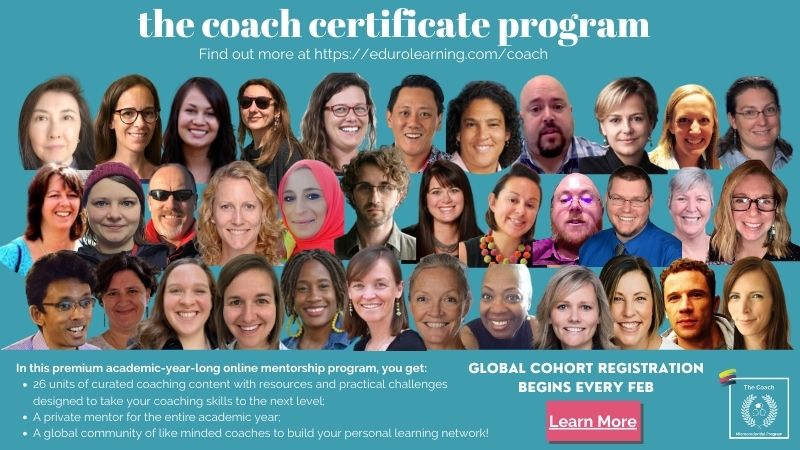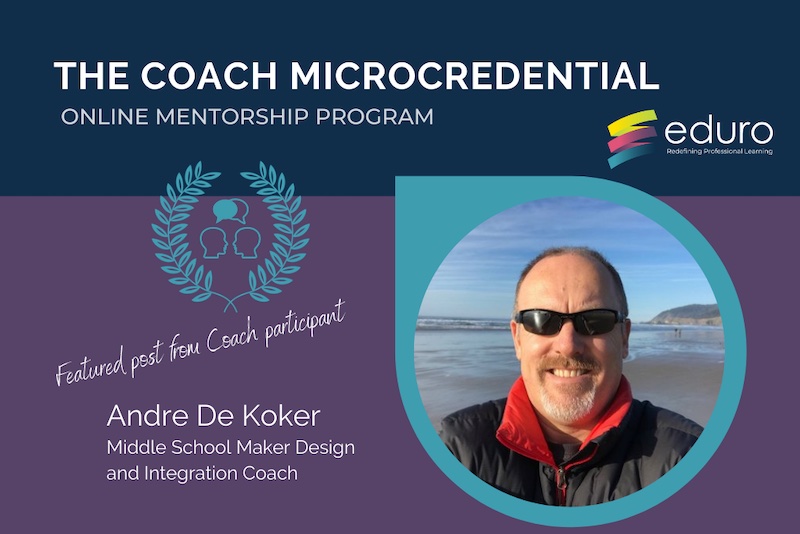We want to give you a peek inside our Coach Certificate & Mentorship Program. Coaches taking part in this academic-year-long journey have graciously given us permission to post some of their learning and reflections from the private coursework they are undertaking during this program. Where possible, we have shared the course and the action task to give context for the guest post.
The Topic: Coaching: From Theory to Practice
The Task: In collaboration with the same teaching partner as before, have a post-observation coaching conversation.
Experiences of a Novice Coach: The Post Observation Reflection
Students were still sauntering out of the classroom after the lesson as my colleague and I sat down to discuss the grade 7 Science lesson I had just observed. We were both relieved that the lesson was over and basked in the experience of this new relationship between the two of us-that of a teacher and coach.
My very first debrief was informal and exhilarating in one sense, but more purposeful due to the nature of my role and the goal of this observation. To be honest, I am still trying to figure out what exactly I am “coaching” into or for. I have stepped into the newly created role of Maker and Integration Coach at Concordia International School Shanghai. It is different from anything I have experienced before. A math, tech or literacy coach comes in with a focus or a curriculum set in place. My role seems to bridge all of the subject areas-so what am I looking for? What student work should I focus on? Should I even focus on the student work or should I rather focus on curriculum development with the teachers? All of these questions I have yet to answer as I move further into the nuances of this role at our school.
“How did you think the lesson went?” her words interrupted my world, posing the question I was about to drop.
I responded with a few thoughts remaining cognizant of not taking over the conversation. As the discussion continued, we both felt the lesson went well, but we were concerned about our language learners and their ability to engage the subject matter. Student learning was impacted in this instance and needed to be addressed somehow moving forward.
As I continue the long walk on my new coaching journey, I learned that advance planning is key to a successful coaching experience. I definitely need to be more purposeful and intentional in my planning. I realized it the moment the class began. We had discussed the basic idea behind the session informally and during the pre-observation but had not set very clear goals for her lesson. I felt a bit like a fish out of water during the session. Should I engage students or not? Where do I sit? Can I move around? What are the teacher’s expectations?
The next time I have this opportunity things need to be different. I need to create a system for documenting the pre-observation. Clear goals and procedures for the session need to be set and discussed. I also need to be aware of what the teacher would like to see or experience when I am in the room. There needs to be a plan for the post-observation. I think it may be beneficial to just allow for some time to process before rushing into a meeting. During the session I need to be a listener, knowing what types of questions to ask and be ready to shift between the different coaching approaches as demanded by the situation.
As the next class interrupts our meeting, I depart with the following on my mind.
Clear goal setting & expectations should lead to a much more productive post observation meeting.
I can’t wait.
Read more from The Coach participants as they share their learning from the microcredential program…
Sandra’s post: Coaching in Practice
Cary’s post: The Coaching Cycle
Jo’s post: The Coach Approach
Amy’s post: What is the Value of a PLN as a Coach?
Meg’s post: Gaining Skills and Self Confidence in Coaching


Recent Comments